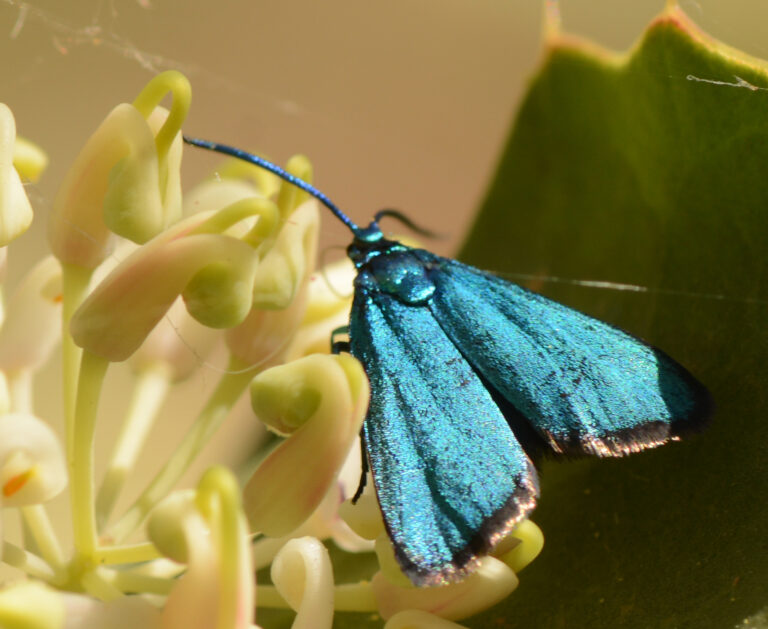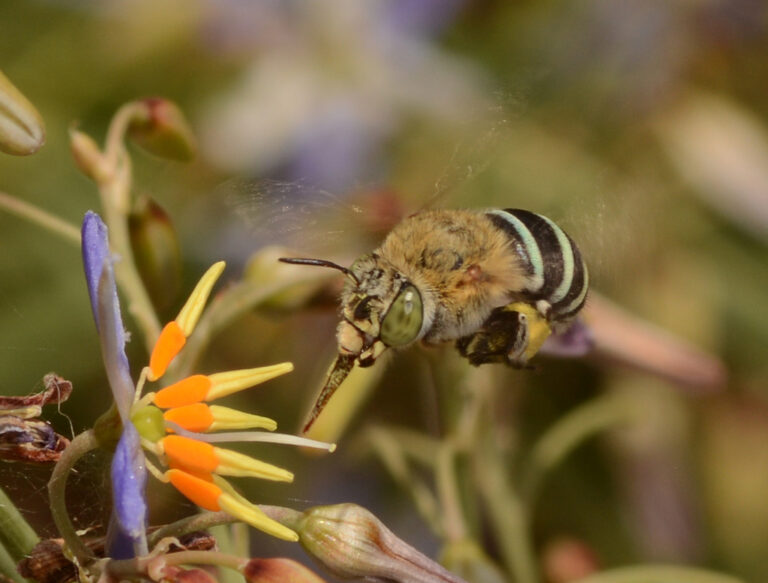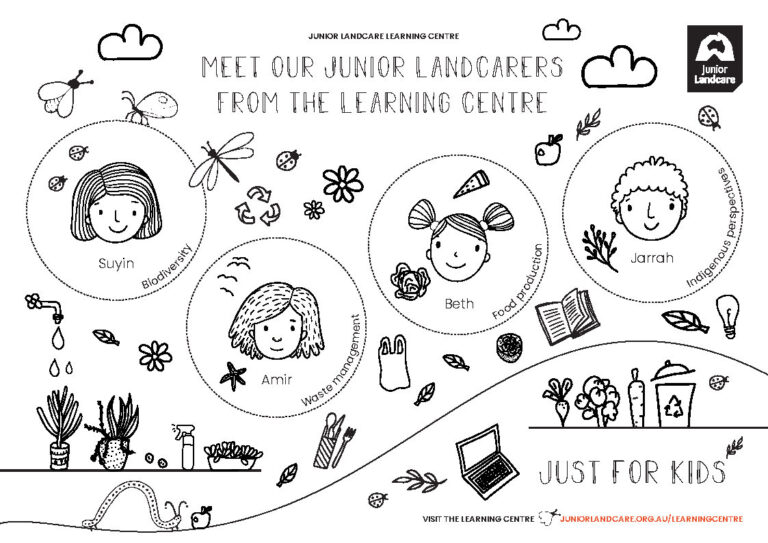In his wonderful video, UCLN Secretary Adrian Robb shares the thinking behind the creation of his beautiful Pollinator Garden and lets you view the progress he has made!

Have you ever noticed the mob working beside you in your vegie patch or orchard?
The birds, bats, butterflies, insects, and bees that are attracted to your property by flowers are the often-overlooked pollinators of our world striving beside you to assist you with getting the best out of your food plants.
Together with the wind, pollinators spread pollen from plant to plant increasing the productivity in your fruit and vegetable garden.
Recently, UCLN Secretary Adrian Robb and his partner made a conscious decision to turn a ‘problem’ area of their Lauriston property into a pollinator garden. You can follow this link to watch Adrian discuss the planning that went into this decision and the progress they have made!
Soon, they will find their garden is buzzing with activity. It will be full of pollinators because they have planted a variety of flowering plants to attract them to the once dormant area of the property between the kitchen garden and orchard. From the beautiful vantage point they have established; Adrian and his partner will be able to watch the flowers being worked by our native pollinators.
During his recording, Adrian discusses their decision to plant this area with a mix of indigenous and introduced species, offering something for the introduced European honeybees to comb the pollen from to make honey for their future hives and the native buzz pollinators to release the pollen from by using the vibrations from their wings.
With different aspects from full sun to shade; a mix of habitats including rocked areas that provide minerals, mulched and low to mid storey planted areas providing shade and shelter, a water source and a variety of species that offer year-round flowering and provide plenty of food sources, this area is ideal for a planting dedicated to pollinators.
While Adrian lives on a large property with plenty of locations to choose from, the concepts behind his pollinator planting can be easily replicated in any sized space. Provided you can offer a sheltered spot, a safe waterer (see UCLN Treasurer Chris Gymer’s video) and year-round flowers, there will always be something in your garden to tempt pollinators to visit.


